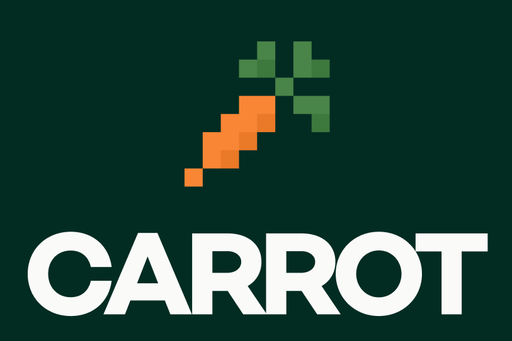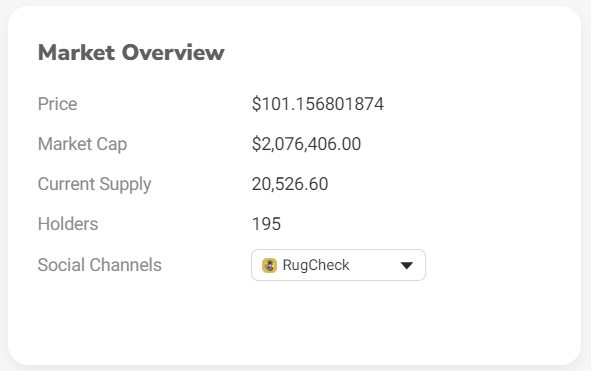
Taxing DeFi Earnings as Capital Gains? Carrot Secures $2M TVL in Beta Launch Amid Solana Yield Wars
A new player emerges in Solana’s fiercely competitive DeFi scene. What separates Carrot from rival yield aggregators?
- Published:
- Edited:
Carrot, Solana’s newest lending aggregator, celebrates the debut of its beta app by attracting over $2M TVL (Total Value Locked) within two hours of launch.
The new application joins established protocols like Lulo Finance, offering simplified, hands-free stablecoin yield. How is Carrot different from its rivals?
Carrot Average Deposit Value at $10.6k
Since launching on August 27 Carrot has attracted just over $2M in TVL, accepting deposits in USDC and USDT. Based on Solscan data, 195 wallets currently hold Carrot’s yield-bearing token $CRT.
This suggests that 195 users have either deposited funds directly into the Carrot vault or purchased $CRT on decentralized exchanges. With over $2M in TVL, the average user deposit currently sits at just over $10.6k.

While this might imply users are eager to deposit large sums directly into the protocol, figures are more likely skewed due to a small sample size. At press time, approximately 49% of $CRT supply is held in just three wallets.
How is Carrot Different?
Aiming to simplify Solana DeFi, Carrot proposes an innovative and tax-efficient model. Like most lending aggregators, Carrot automatically allocates stablecoin deposits across Solana DeFi protocols to ensure optimized yield generation.
$CRT, Carrot’s native yield-bearing token, is the platform’s key differentiator. By holding $CRT, depositors effectively own a proportional share of the Carrot vault, which can be redeemed for USDC (minus a 0.05% arbitrage protection fee).
To illustrate, $CRT’s current supply is 20,526 tokens. Any user holding 206.2 $CRT can redeem their $CRT tokens in exchange for 1% of the Carrot vault, which is currently valued at $2.06M. Through this mechanic, $CRT is expected to appreciate in value relative to the yield generated through the protocol.
In an exclusive statement with SolanaFloor, Carrot founder JSB argues this model offers greater flexibility within Solana DeFi and “allows for our service to be widely distributed, accessible, and composable with the rest of the ecosystem.”
“On the yield aggregation side, we take a risk management approach that doesn’t concentrate the funds in any one source at once - that combined with our multi-token mix allows us to protect users from exploits, while still maintaining highly competitive rates.” - JSB, Carrot Founder

While this doesn’t necessarily mean that Carrot offers better APY (Annual Percentage Yield) than its competitors, commentators argue that the model might have beneficial tax implications.
Some users suggest that any profits realized through the platform can be declared as capital gains, rather than interest income. Depending on certain jurisdictions, this may enable users to pay reduced rates on their taxable earnings.
Points? Airdrops? What Can Users Expect?
While alternative lending aggregators typically pass accrued rewards and airdrops on to users, Carrot has yet to announce its position. According to Carrot’s F.A.Q.s, “Points earned on the platform may be linked to incentives or rewards, but are currently unreleased.”
Adding further clarity, JSB informed SolanaFloor that “those point programs are a big unknown and until we have more clarity - the best position we can take is to acknowledge that Carrot will accrue points, and when those points have value - it will be passed on to holders.”
Looking to the future, the protocol anticipates adding additional assets, like $PYUSD, within the coming weeks. JSB confirmed Carrot “will continually be working to aggregate the best sources of reliable real yield that doesn’t require taking on unnecessary price speculation risk. We expect to add $PYUSD in the next week or so,”
Currently, Carrot charges no fees and is free to use, barring the 0.05% redemption fee used to protect $CRT holders from arbitrage exploits. Beyond that, JSB contends “Once the protocol has scaled and has proven to be reliable, we can capture a performance fee, which aligns the interests with the protocol and holders.”
Read More on SolanaFloor
Solana’s ailing NFT market shows no mercy to new launches
Big Supply, Big Problems as Solana's NFT Market Rejects Large Collections
Pick Up the Basics of DeFi


